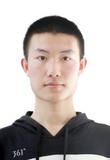BibTeX
@inproceedings{Wang_ICLR25,
TITLE = {{TokenFormer}: Rethinking Transformer Scaling with Tokenized Model Parameters},
AUTHOR = {Wang, Haiyang and Fan, Yue and Naeem, Muhammad Ferjad and Xian, Yongqin and Lenssen, Jan Eric and Wang, Liwei and Tombari, Federico and Schiele, Bernt},
LANGUAGE = {eng},
YEAR = {2025},
PUBLREMARK = {Accepted},
MARGINALMARK = {$\bullet$},
BOOKTITLE = {Thirteenth International Conference on Learning Representations (ICLR 2025)},
ADDRESS = {Singapore},
}Endnote
%0 Conference Proceedings %A Wang, Haiyang %A Fan, Yue %A Naeem, Muhammad Ferjad %A Xian, Yongqin %A Lenssen, Jan Eric %A Wang, Liwei %A Tombari, Federico %A Schiele, Bernt %+ Computer Vision and Machine Learning, MPI for Informatics, Max Planck Society Computer Vision and Machine Learning, MPI for Informatics, Max Planck Society External Organizations External Organizations Computer Vision and Machine Learning, MPI for Informatics, Max Planck Society External Organizations External Organizations Computer Vision and Machine Learning, MPI for Informatics, Max Planck Society %T TokenFormer: Rethinking Transformer Scaling with Tokenized Model Parameters : %G eng %U http://hdl.handle.net/21.11116/0000-0010-0FC1-4 %D 2025 %B Thirteenth International Conference on Learning Representations %Z date of event: 2025-04-24 - 2025-04-28 %C Singapore %B Thirteenth International Conference on Learning Representations %U https://iclr.cc/Conferences/2025

